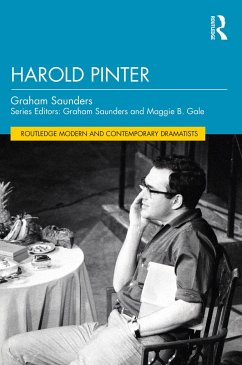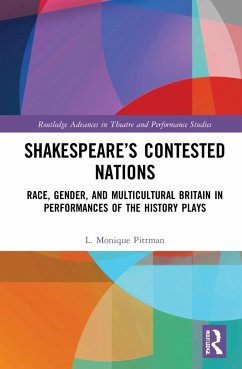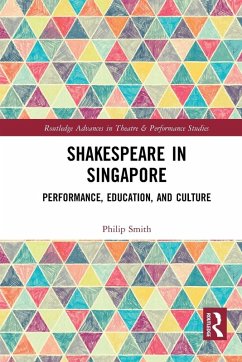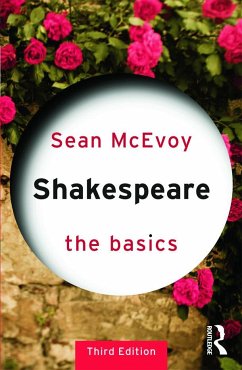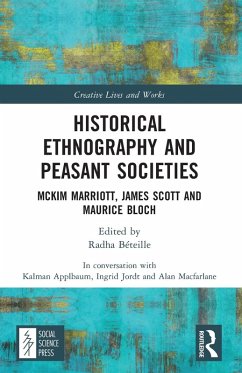
Harold Pinter's Shakespeare
Shakespeare's Influence on the Work of Harold Pinter
Versandkostenfrei!
Versandfertig in 6-10 Tagen
43,99 €
inkl. MwSt.
Weitere Ausgaben:

PAYBACK Punkte
22 °P sammeln!
This book charts the impact of Shakespeare's works on Harold Pinter's career as a playwright.This exploration traces Shakespeare's influence through Pinter's pre-theatre writings (1950-1956), to his collaboration with Sir Peter Hall (starting properly at the RSC in 1962 and continuing until 1983), and a late, unpublished screenplay for an adaptation of The Tragedy of King Lear (2000). Adding to studies of playwrights such as Samuel Beckett and James Joyce as significant influences on Harold Pinter's work, this study aims to highlight the significant and lasting impact that Shakespeare had both...
This book charts the impact of Shakespeare's works on Harold Pinter's career as a playwright.
This exploration traces Shakespeare's influence through Pinter's pre-theatre writings (1950-1956), to his collaboration with Sir Peter Hall (starting properly at the RSC in 1962 and continuing until 1983), and a late, unpublished screenplay for an adaptation of The Tragedy of King Lear (2000). Adding to studies of playwrights such as Samuel Beckett and James Joyce as significant influences on Harold Pinter's work, this study aims to highlight the significant and lasting impact that Shakespeare had both formatively and performatively on the playwright's career. Through exploring this influence, Morton gains not only a greater understanding of the shaping of Pinter's artistic outlook and how this affected his writing, but it also sheds light on the various forms of Shakespeare's continued influence on new writing, and what can be gained from this.
This study will be of great interest to students and scholars in theatre and performance studies.
This exploration traces Shakespeare's influence through Pinter's pre-theatre writings (1950-1956), to his collaboration with Sir Peter Hall (starting properly at the RSC in 1962 and continuing until 1983), and a late, unpublished screenplay for an adaptation of The Tragedy of King Lear (2000). Adding to studies of playwrights such as Samuel Beckett and James Joyce as significant influences on Harold Pinter's work, this study aims to highlight the significant and lasting impact that Shakespeare had both formatively and performatively on the playwright's career. Through exploring this influence, Morton gains not only a greater understanding of the shaping of Pinter's artistic outlook and how this affected his writing, but it also sheds light on the various forms of Shakespeare's continued influence on new writing, and what can be gained from this.
This study will be of great interest to students and scholars in theatre and performance studies.





